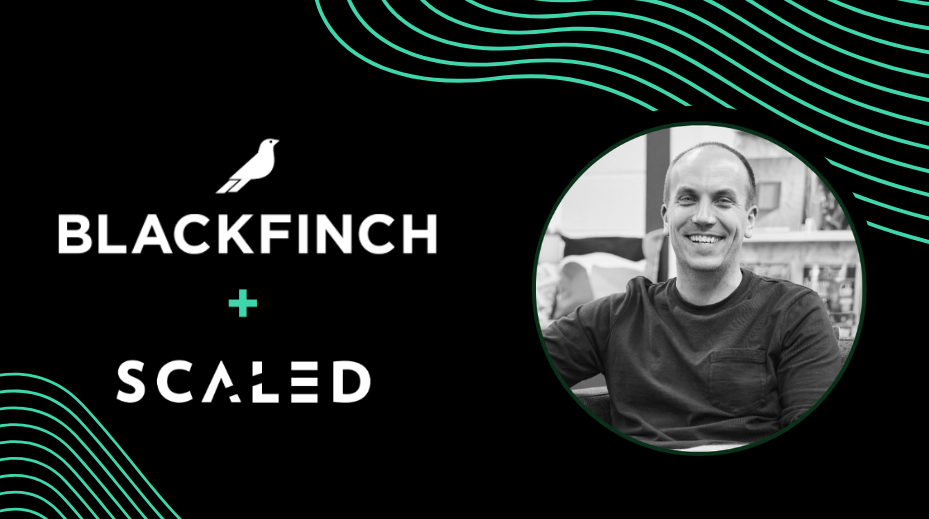Being a generalist used to be a superpower in agency land. If you could be master of all then chance is, you’d be best placed to win the biggest accounts.
In the early stages of the digital maturity curve size matters. In the initial phases of the digital ‘transformation’ journey no one gets fired for hiring the ‘big guys’. It’s safe and easy whilst the business and its people become digitally native.
But that begins to change as digital natives climb the ranks and ‘digital’ becomes the bedrock of strategy.
That era is now and so we are witnessing a major shift in how agency services are being acquired, and from whom.
Having spent the last year speaking to dozens of agencies of all shapes and sizes we can say without any doubt that those agency businesses choosing to double down on a specialism are winning.
Why is this happening?
It’s an interesting time to run an agency. The market has never been more fragmented, or competitive, than it is now. And because of it you must be Good to grow and win.
Sure, the challenge has been made easier by the tidal wave of budgets shifting to digital but over the last two to three years that upside has been wiped out by the plethora of Covid agency startups.
Combine that with a more challenging macro-economic environment and things have started to become a little trickier than they once were.
Competition – less budget = a tougher trading environment.
In some ways a recession, should it have come, may have been helpful to some of the better agency businesses out there as it may well have thinned out the goods from the also rans.
Except it never came.
At least not for now.
And so where does that leave us? The short answer is a tough trading environment where supply and demand economics simply state that the buyer of those services has more choice than ever before.
More choice means more complexity of course, it’s all upside for those purse strong holders. And so, what do they do?
Armed with more digital knowledge than ever before it means that shopping around to find EXACTLY the right agency partner is not just sensible, but a necessity.
And this is where specialisms start to come into play.
Buying BIG doesn’t pay.
Whereas it used to be easy to ‘buy the big guys’ or go to a single place capable of managing all your digital needs, a much more educated client is realizing that specialists are best, and that size is not all it’s cracked up to be.
Instead, it pays to work with people in times of tighter trading that have been there and bought the specific tee shirt you wear – or wish to own!
What have we seen working?
And so it is for this reason that niche specialist agencies are ’winning’ now. And by that we don’t mean those offering channel specialisms as they did in the days of old.
We mean REALLY specializing that means being brave in how you present your proposition to market.
No, from our research the more specialist the better. Think web dev for the health industry in the USA, or PPC or creative for the finance market.
Think in two (or more) dimensions.
While it used to be OK to be a channel specialist the era of scaling through selling yourself as an SEO or brand agency is over.
Instead, you should look at the proposition and positioning problem through the following lens:
Which Channel x Which Location x Which Industry
It may feel like you are cutting off much of the market by niching down so much, but the evidence is unequivocal; those that do it scale fastest.
Such focus can create an issue with Total Addressable Market (TAM) of course but then there is a way around that…
How?
To grow a great business, you must first become truly great at doing one thing. For our last agency we became the very best (through our lens) at content marketing and from there we built out a bridgehead into almost every digital marketing channel you can think of.
By the time I left Zazzle/Stickyeyes Group we had teams across everything from demand generation and PPC to research and insights and international PR. We even launched specialist sub agency brands for our Pharma and iGaming clients.
This approach to building great businesses still guides us today and is hung on the wall at Scaled HQ:

How do you decide?
The process of getting to the right answer to your own proposition is not one to be taken lightly of course. It really, really matter and whilst you probably have a firm view in your head of a couple of options there is only one way to ensure you get it right and remove the assumptions.
A thorough Go to Market process.
Go to Market
There can be little debate that despite the agency sector focusing in on helping other brands design, launch and market products and services attempts at producing a great go to market plan have been weak-to-poor for the majority.
The reason? We go back to the fact that for decades now the agency market hasn’t had to. By simply positioning yourself as a ‘creative’, ‘media’ or ‘digital’ agency has been enough as internal teams struggled to keep up with the rapidly changing landscape.
But that picture has matured and alongside the increase in competition in all agency sectors it now asks more of your plan, positioning and sales and marketing approach.
What is your trojan horse?
And so, this is the question you must answer. As we detailed above to win you must be able to have a legitimate claim to being one of the very best at your specialist Mastermind subject.
And whilst you will have a decent idea of what that specialism may be from current client base, experience and market knowledge, nothing beats going directly to your existing or prospective customers.
And whilst this post is not designed to be a deep dive into what a world class Go to Market process should look like (we are saving that for a separate eBook coming soon) it is worth outlining the general steps you should take to achieve clarity and gather evidence for you refocus.
ICP
The ICP (Ideal Customer Profile) stage is really all about interviewing a broad selection of good-fit existing customers, as well as talking to some of those that could and should be.
Importantly, you should always use the same templated ICP Questionnaire (if you want a copy of ours, please email us at hello@scaled.co.uk) and structure your questioning carefully to ensure you get a consistent answer to the right questions.
Personas
From here you should be sitting down as a senior team and segmenting answers. By this point you should find that those interviewed fall into one to three or four categories of needs. These should become your target personas, each of which has a different set of pain points and routes to your product or service.
Pain points and messaging
For each of these ‘personas’ you should capture the key pain points and the resultant messaging that will resonate against them. This will help really clarify how best to approach your sales and marketing plan for each of them.
Proposition
It will also help you refine and define who you are, why you do it and what your outward facing positioning should be. This is a complex and important process of course and it can pay to create a couple of examples and take them back to your best ICP interviewees for further feedback before settling on The One.
From here then it’s a case of reinventing your website messaging, sales collateral (including key case studies etc.) and marketing material to align.
Which then brings us to the relaunch plan and longer term, focused approach, to sales and marketing execution.
Sales and marketing plan.
As previously explained, this post is not a deep dive (that’s coming) but what is worth highlighting is the importance of following a good framework when designing your plan to ensure that you cover:
- Each persona thoroughly
- Each content type needed for each persona.
- A ‘flight plan’ designed to ensure the entirety of the funnel is covered.
This means creating three separate sales and marketing plans – one for each persona – and then overlaying them into a single document.
Just make sure you have activity and content that touches everything from pre-awareness all the way through to retention, as in the chart below.

Next steps
By working through this process, you should come out the other end with a super focused, market stress-tested proposition, alongside a made-to-measure sales and marketing plan.
A super detailed eBook is coming soon on the end-to-end Go to Market process, so do watch this space for that and in the meantime if you have questions about your own positioning challenges then feel free to email me direct at simon@scaled.co.uk.




